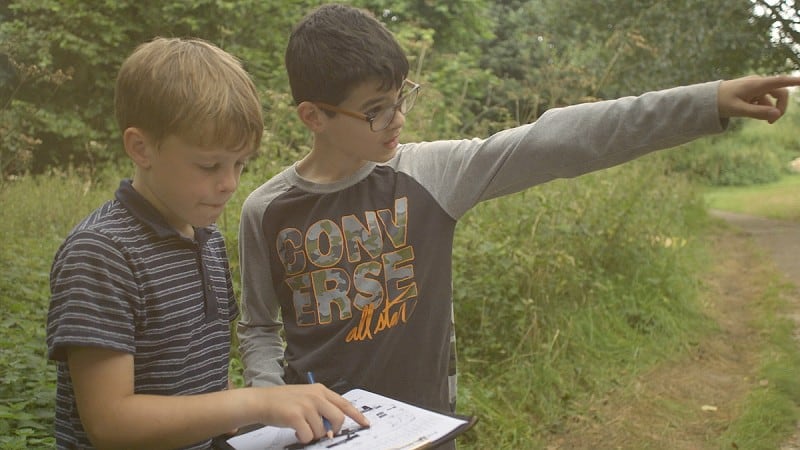This course will fuse fieldwork with outdoor activities to give students the opportunity to explore real geographical contexts in an exciting and engaging way. The course allows students to get first hand experiences of a range of physical landscapes and processes and a unique insight into the interaction of people and the environment. Individuals undertaking the course will be encouraged to develop their team skills and individual motivation whilst involved in activities that promote a healthy lifestyle.
You can include adventure activities in the course programme, further information is here.
Example Timetable
Day 1
Morning
Arrive (approx. 12 - 1pm)
- Welcome and outline the challenges ahead
- Tour of Centre
- Settle into rooms
- Allocate kit (i.e. waterproofs)
Afternoon
Team Building
Team building activities to enable students to develop their personal, learning and thinking skills (PLTS).
Evening
Dusk Exploration
A journey through the local area. Activities will give students an opportunity to burn off some energy after travelling to the Centre
Day 2
Morning and Afternoon
Select one option from:
- Exploring River Environments
- Exploring Coastal Environments
- Exploring Limestone Environments
- Exploring a National Park: Tourism
- Exploring Upland Environments
- Exploring Mountain Environments
Evening
Review of the day and orienteering.
Day 3
Morning
Conservation Challenge
Students will learn about the environment whilst undertaking a conservation task to help protect it.
Afternoon
Depart after lunch
Final farewell from FSC staff.
How this course fulfills the specification
National Curriculum Links
Citizenship
2.2 (b) Taking account of different viewpoints
2.3 (a) Explore creative approaches to taking action on problems and issues to achieve intended purposes
3 (e) Actions that individualsand groups can take to influence decisions affecting the environment
Science
2.1 (b) Assess risk and work safety in the field
3.4 (c) Human activity and natural processes can lead to changes in the environment
4 (e) Experience science outside theschool environment
Geography
1.1 (a) Understanding the physical and human characteristics of real places
1.1(b) Developing ‘geographical imaginations’ of places
1.2(a) Understanding the interactions between places
1.2 (b) Knowing ‘how and why where places and landscapes are changing
1.5 (a) Understanding how sequences of events in the physical and human worlds lead tochange in places
1.6 (a) Understanding that the physical and human environment are interrelated
1.6 (b) Exploring sustainable development
1.7 (b) Appreciating people’s values and attitudes differ
2.1 (a) Ask geographical questions, thinking critically, constructively and creatively
2.1 (e) Find creative ways of using and applying geographical skills
2.1 (g) Solve problems and make decisions to develop analytical skills and creative thinking
2.3 (a) Use a mapat a range of scales
3 (f) Physical geography, physical processes and natural landscapes
3 (h) Interactions between people and their environments, and managetheir future impact
4 (a) Build on and expand their personal experiences of geography
4(b) Explore real and relevant contemporary contexts
4 (e) Undertake fieldwork investigations outside the classroom, individually and as part of a team
PE
1.1 (c) Responding with body and mind to the demands of an activity
2.3 (b) Develop mental determination to succeed
4 (g) Make links between PE and other subjects and areas of the curriculum
English
1.2 (a) Making fresh connections between ideas, experiences texts and words
1.4 (c) Explore other ideas and develop their own
2.3 (c) Generate and harness new ideas and develop them in their writing
Mathematics
2.3 (d) Look at data to find patterns andexceptions
4 (d) Work on problems that arise in other subjects and in contexts beyond the classroom
Added value of this course
- Develop personal skills
- Have fun
- Be inspired by a passion for the subject
- Build friendships

